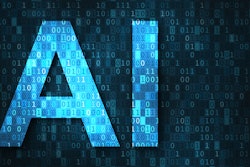Dental artificial intelligence (AI) company VideaHealth recently conducted a study to analyze the impact of AI as an assistive clinical decision support tool on dental practices' clinical and financial performance. Based on a nine-month timespan across 100 locations and more than 471,000 patients, the largest dataset to date was used to understand the value of dental AI. The analysis measured clinical and financial indicators with and without AI use, revealing practice growth following AI integration.
Key findings
The study revealed that the average office saw a 13% increase in annual net production for restorative and periodontal treatments, which translates into an additional $78,268 in annual growth per practice following VideaAI integration. There was a noteworthy 22% uptick in treatments planned and completed post-integration, highlighting VideaAI’s role in enhancing the diagnostic process and follow-through in treatment. The full report is available here.
As technology continues redefining what is possible in healthcare, AI is leading the way for a significant transformation in how dental care is delivered. Here are five things to know about dental AI heading into 2024:
- Dentists, hygienists, and other dental team members will experience substantial workflow benefits with dental AI. These benefits include efficiencies such as streamlining diagnoses, treatment planning, scheduling, charting, and more.
- Clinical consistency will strengthen across practices, ensuring that patients receive standardized care and enriched experiences when using dental AI as an assistive clinical decision-support tool. Dental AI helps improve the accuracy of identified caries and facilitates better patient-provider interactions.
- Dental practices and dental service organizations (DSOs) leveraging dental AI will experience growth across all treatment categories, with restorative and periodontal categories likely experiencing the most growth. Dental AI can improve patient education and enable seamless case presentations to help patients better understand what is happening inside their mouths.
- Dental AI will support growth in new patient inflow, as it enhances diagnostic precision for new and existing patients and helps ensure patients receive timely and appropriate care. Dentists can present patients with the treatment options best suited for their specific diagnosis thereby improving patient trust and clinical outcomes.
- Dental AI adoption rates by both DSOs and practices are expected to continue to accelerate in 2024, and more patients across the U.S. will receive AI-assisted exams and care. As more patients become aware of the existence and benefits of AI-powered tools in dentistry, patient demand will soon follow.
On a related note, in a recent episode of the "Dental Assistant Nation" podcast series recorded during SmileCon in Orlando, FL, Katie Poulsen, RDH, stopped by to talk about the growing trend of AI and how it will impact dental practices in the very near future. What do dental assistants need to know about it for their everyday responsibilities? How will it impact patients? We talk about that and much more about the technology in the podcast below. Click below to listen.



















